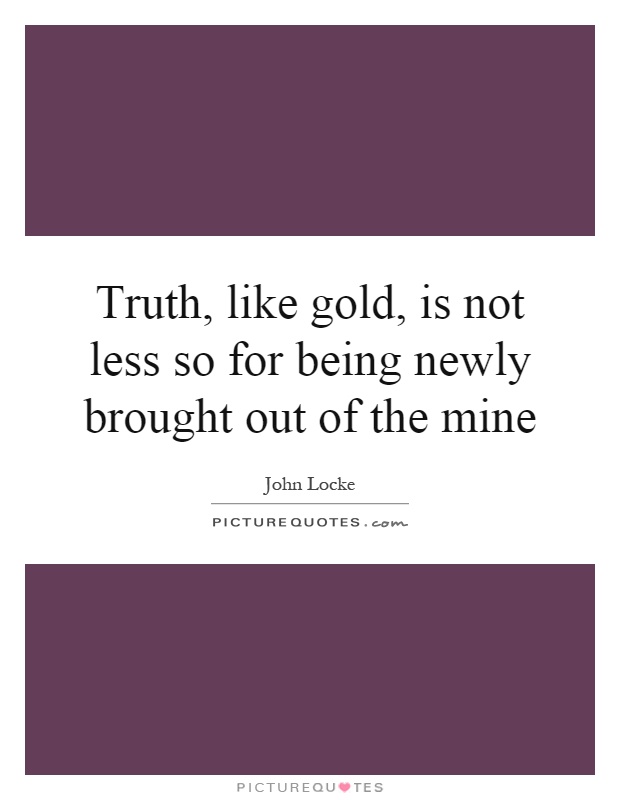Truth, like gold, is not less so for being newly brought out of the mine

Truth, like gold, is not less so for being newly brought out of the mine
John Locke, a prominent figure in the Enlightenment era, was a firm believer in the power of reason and the pursuit of truth. He emphasized the importance of seeking knowledge and understanding through empirical observation and critical thinking. In his works, Locke often compared truth to gold, suggesting that its value is not diminished by its recent discovery or revelation.Locke's analogy of truth being like gold freshly mined highlights the idea that truth is timeless and immutable. Just as gold retains its intrinsic value regardless of when it is unearthed, truth remains true and valid regardless of when it is discovered or revealed. This concept challenges the notion that truth is subjective or relative, emphasizing instead that there are objective truths that exist independently of human perception or interpretation.
Furthermore, Locke's comparison of truth to gold suggests that both are precious and valuable commodities that must be sought after and cherished. Just as gold is highly prized for its rarity and beauty, truth is highly valued for its ability to enlighten and inform. Locke believed that the pursuit of truth was essential for the advancement of knowledge and the improvement of society.
Additionally, Locke's analogy of truth being like gold newly brought out of the mine implies that truth is not always readily apparent or easily accessible. Just as gold must be mined and extracted from the earth, truth must be diligently sought after and uncovered through careful investigation and analysis. This idea underscores the importance of critical thinking and intellectual curiosity in the quest for truth.












 Friendship Quotes
Friendship Quotes Love Quotes
Love Quotes Life Quotes
Life Quotes Funny Quotes
Funny Quotes Motivational Quotes
Motivational Quotes Inspirational Quotes
Inspirational Quotes